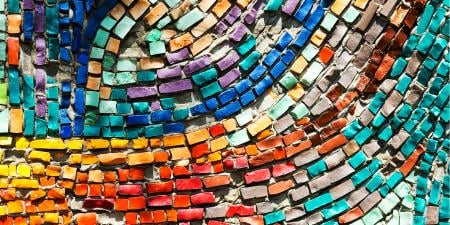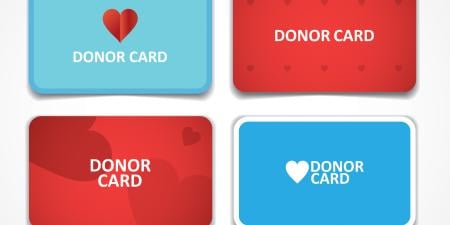Before coming to eastern Africa, I was repeatedly warned about "culture shock." We have been fortunate to enjoy a fair amount of international travel and had lived for a time in Central America. I thought I was ready. Most of the transition has gone well. I am even learning a little Swahili. Against the advice of the Regional Security Officer for the US Embassy, we elected to not live in one of the secure compounds of clustered townhomes that house mostly Americans and personnel from other embassies. Instead, we selected a lovely older home on a 2 1/2-acre plot.
Kenyan Asians and African Kenyans
The neighborhood has very nice homes, many of which are owned and occupied by Kenyan Asians. These folks are third or fourth generation Kenyans who culturally continue to relate to India. They are the descendants from the Indian railroad workers brought into Kenya during the British colonial rule. They have prospered in Kenya financially, and "Asians" own many of the larger Kenyan companies. It seems curious that after 3 or 4 generations they still do not identify themselves as Kenyan. We have enjoyed our conversations with our neighbors and have frequently been given advice by them, particularly on how to interact with "Kenyans." It has been more difficult than we thought to relate to "African Kenyans." We have a great relationship with the Kenyan staff at work, both the professional and clerical staff. We have had some wonderful discussions about America. At our Fourth of July party we all toasted our common heritage of rebellion against British rule. However, the rest of the Kenyans with whom we have daily interaction are at such a different income level that it is difficult to be friends or even friendly.
The Most Difficult Cultural Adjustment We Have Faced
The level of poverty and unemployment in Nairobi is so high that we are constantly made aware of the disparity of resources. "Please help me. My baby is sick and needs medicine." This plea came from a woman in rags sitting on the street outside our home with a baby asleep on the dirt. Perhaps the easiest thing to do would be to give her some shillings, which might make me at least feel a little less guilty. However, we are repeatedly warned by other expatriates and our Asian Kenyan neighbors to give nothing to beggars. They will return 10-fold the next day, we are told, if the word gets out that the "daktari" gives money. Perhaps some examples will help portray the dilemma.
We interviewed for a man to help with housework and driving. "Lucas" was selected. He had a pleasant personality and came with good references. However, very soon problems began to arise. Lucas was repeatedly absent for several days at a time due to illness. He came to see me at home on a weekend and asked me to get him some medicine to cure him. I asked if he had seen a doctor. Of course, the answer was that he could not afford it. He then proceeded to take off his shirt to show me a rash that was bothering him. As I gazed at an emaciated body with a typical Herpes Zoster rash, I suspected immediately the problem. This man was in the latter stages of AIDS. The physician part of me began to race through options. How could I help? I knew I could not be his physician. I did not even have a Kenyan medical license. He could never afford retro-viral drugs nor even lab tests and preventive therapy such as Sulfamethoxa-zole/trimethoprim. I began to worry that his cough might be more than a simple problem. Could he be spewing mycobacterium? My mind returned to an incident the previous week when he had presumably fallen asleep while driving and almost went off the road. I knew he could no longer work for us. I was not worried about his infectivity, but rather his capacity to do the job. We sat on the porch and talked for a long time. He seemed to understand that he could not work anymore for me but began bargaining for some money so he could go to the doctor, get cured and find another job. I simply could not say no. I gave him one month's salary as terminal pay and some extra money to go see a doctor. We left on good terms.
The next day he was back with his daughter in her school uniform. "Please, I need some money to pay my daughter's school tuition or they will kick her out. She wants to be a doctor like you." As hard as it was, I held the line on what I had already given him and assumed this ended the saga. The next day his wife showed up toting a small baby. "Please daktari, Lucas is very sick and will die if you do not give him some money for medicine." My heart went out to this woman. Was she also HIV+? Was the baby? How could I justify sitting on the porch of this beautiful home saying no to her? On the other hand, where would it stop? This is one of the dilemmas of "giving" in Kenya.
Institutional Need
Recently, I visited a mission hospital outside of Nairobi, staffed by rotating American physicians under the auspices of their church. The chief surgeon, an orthopod from Atlanta, immediately took hold of me and urged, "Come with me. You have to see something." He led me to the bedside of a precious 10-year-old Kenyan girl. She had been brought to the hospital following snakebite. He had operated to remove necrotic tissue from the area of the bite and relieve the tremendous pressure from swelling. However, she was showing increasing systemic manifestations of the venom. In his opinion, if she did not receive anti-toxin within the next 24 hours, she would probably die. Did the Peace Corps have any? How about the US Embassy? Could I help him? My mind began to race. Yes, I knew that we stocked a shared supply of anti-venom with the US Embassy medical office. It was for use on Embassy personnel or dependents or Peace Corps volunteers. The words from my orientation sessions came ringing back. "Under no circumstances are you to treat or give medicine to any person other than authorized US personnel." This was the General Counsel for the Peace Corps speaking. My boss, the director of clinical services for Peace Corps and a general surgeon, leaned over and whispered, "You better listen to this as you will be tempted." The speaker went on to outline the dire consequences which could ensue if we "misused" US property. OK! I can handle this, I mused. However, standing in a mission hospital a world away from Washington, looking at a little girl that I could probably help from dying, was not part of the bargain. The US spent millions in aid to Kenya. How could I justify not "giving" to this little girl and this caring and dedicated physician?
The Harambe
The harambe is a long-standing cultural custom in Eastern Africa. It has been explained to me that it comes from the tribal custom of helping other members of the tribe in times of need. During my first week in Nairobi, one of the staff said there was a harambe for one of the secretaries and I was invited. Great, I thought. It is nice to be included. It turned out that it was not a gathering at all. Rather, it was a memo to all participants telling them how much they "owed." I have always been supportive of the graduated income tax, but wow, this was a pretty hefty bill. I paid the money, mainly because I was new in country and did not know what else to do. I did not have a very good feeling about it. Sure enough, the next week I was invited to another harambe. Was this the spirit of giving I wanted? Where would it end? Was I being selfish for wanting a bit more personal involvement and control over my gifts? Would I be culturally insensitive if I did not join in this "long standing Kenyan tradition"?
I could cite more examples, but I think these give a good picture of the dilemmas faced by an American physician in Eastern Africa. I purposely did not say how I decided to respond in these situations. The issues are more important than my responses. I do not view my working here as a "gift" to anyone. I am supported well by the US Government through the Peace Corps, and I am gaining much more than I am able to give through my work as a physician. I do feel a desire to "give" in the face of the huge need I see in this country. We are slowly finding what works for us, but if you are faced with the same situation, expect the decisions to be harder than you think.
Daktari Bob



